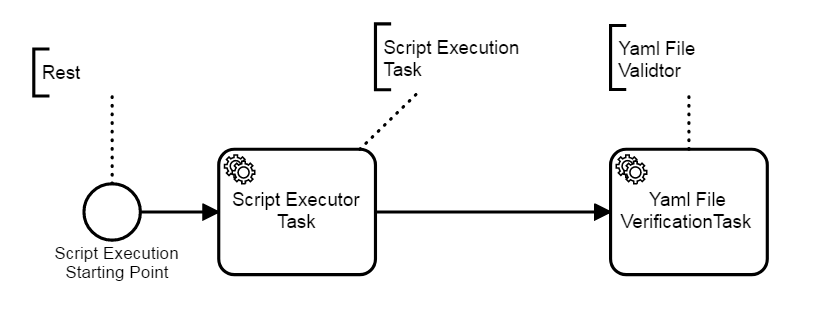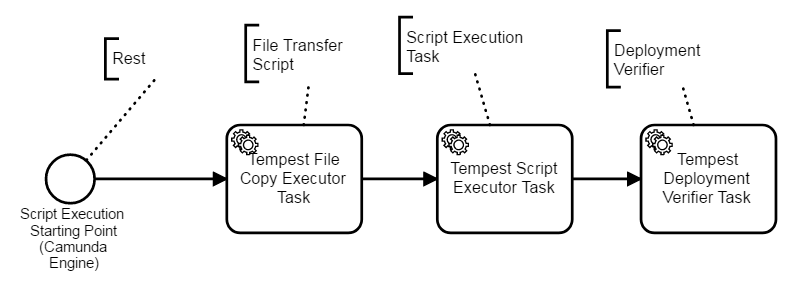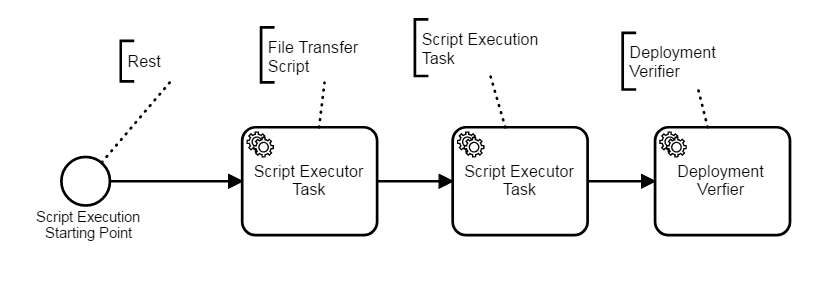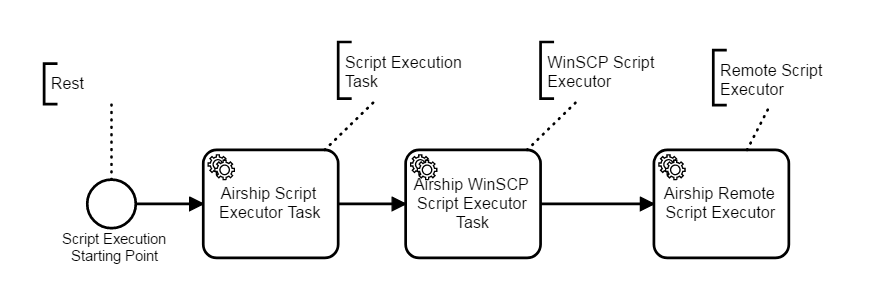PLEASE REFER TO R1 NETWORK CLOUD RELEASE DOCUMENTATION
NC Family Documentation - Release 1
THIS DOCUMENTATION WILL BE ARCHIVED
Contents
Akraino Edge Stack Portal and Workflow engine us hides the complexity of the install and management tools of the large number of edge sites. Akraino Edge Stack portal could be agnostic to specific blueprint and support multiple blueprints from the community.
Akraino workflow process is designed by using spring boot and embedded Camunda workflow engine. The workflow process and Spring boot application provide external rest API. Each external API is responsible for invoking respective Camunda workflow process. Camunda reads the process definitions from the document store or the classpath.
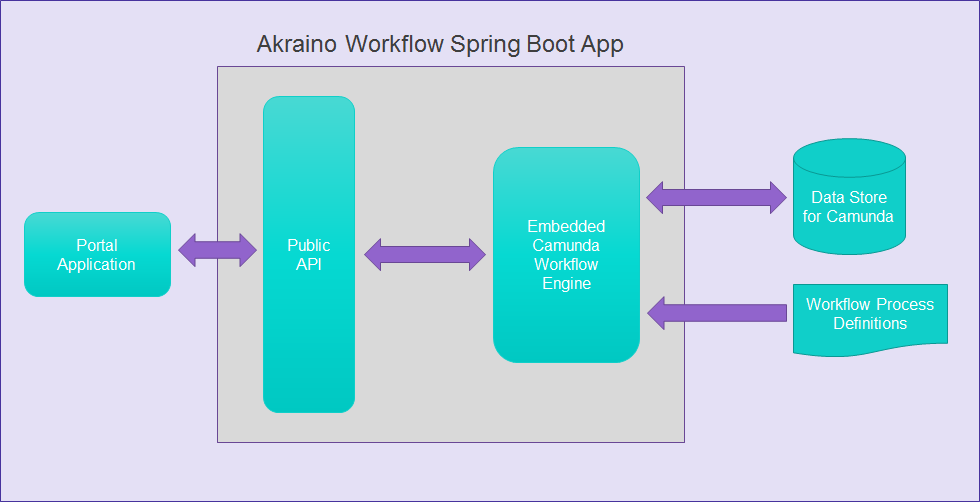
The portal application is responsible to initiate the build and deployment process. It is responsible for consuming the public API provided by Akraino spring boot application. It is also responsible for updating the appropriate response, which is provided by the Akraino API.
Akraino public API defines the rest API for each portal process. The portal application uses this API to execute various process like build, deploy etc.
Akraino Seed code supports the following APIs
Below section provides additional details about the workflow used within the seed code.
This API is used to build and verify the tar file.
Building the tar file will be done by using the shell script, and the same script is executed as part of the workflow process. The rest endpoint for this API is /build/.
The input parameters for this endpoint is as below.
{
"filepath": "string",
"fileparams": "string",
"targetfolder": "string"
} |
| • "filepath" path parameter is used to pass the script filename including the file path, which is used to create the tar file. • "fileparams" parameter is used to pass the parameters to the script file. • "targetfolder" is the folder where generated YAML files will be stored, and it is used by the java process to validate the generated YAML files. |
The output of the build API is given below
{
"message": "string",
"status": 0
} |
Status Code 200 = Build Completed Status Code other than 200 = Build API Failed For each status, an appropriate message is returned. |
The rest endpoint for this API is /deploy/
The input parameters for this endpoint is below.
{
"sitename": "string"
"filepath": "string",
"fileparams": "string",
"winscpfilepath": "string"
"winscpfileparams": "string",
"remotserver": "string",
"port": 0,
"username": "string",
"password": "string",
"destdir": "string",
"remotefilename": "string",
"remotefileparams": "string",
"deploymentverifier": "string",
"deploymentverifierfileparams": "string",
"noofiterations": 0,
"waittime": 0,
"postverificationscript": "string",
“postverificationScriptparams”: “string”
} |
|
The output of the deployed API is given below
{
"message": "string",
"status": 0
} |
Status Code 200 = Deploy Completed Status Code other than 200 = Deploy API Failed For each status, an appropriate message is returned. Deployed API will send intermediate status by consuming Portal status update API. |
The intermediate status response is given below.
{
"siteName": "string",
"buildStatus": "string",
"createTarStatus": "string",
"genesisNodeStatus": "string",
"deployToolsStatus": "string",
"deployStatus": "string",
} |
After completion of the respective status, API will start sending response to the Portal API, which is used to display the intermediate deploy status in Portal.
The rest endpoint for this API is /tempest/
The input parameters for Tempest is given below.
{
"sitename": "string"
"filename": "string",
"fileparams": "string",
"filetrasferscript": "string"
"filetransferparams": "string",
"remotserver": "string",
"port": 0,
"username": "string",
"password": "string",
"destdir": "string",
"deploymentverifier": "string",
"verifierparams": "string",
"noofiterations": 0,
"waittime": 0,
} |
|
The rest endpoint for this API is /apache/
The input parameters for Apache is given below.
{
"sitename": "string"
"filename": "string",
"fileparams": "string",
"filetrasferscript": "string"
"filetransferparams": "string",
"remotserver": "string",
"port": 0,
"username": "string",
"password": "string",
"destdir": "string",
"deploymentverifier": "string",
"verifierparams": "string",
"noofiterations": 0,
"waittime": 0,
} |
|
The rest endpoint for this API is /onap/
The input parameters for ONAP is given below.
{
"sitename": "string"
"filename": "string",
"fileparams": "string",
"filetrasferscript": "string"
"filetransferparams": "string",
"remotserver": "string",
"port": 0,
"username": "string",
"password": "string",
"destdir": "string",
"deploymentverifier": "string",
"verifierparams": "string",
"noofiterations": 0,
"waittime": 0,
} |
|
The rest endpoint for this API is /airship/
The input parameters for airship is given below.
{
“sitename”:”string”,
"filepath": "string",
"fileparams": "string",
“winscpdir”:”string”,
"winscpfilepath": "string"
"winscpfileparams": "string",
"remotserver": "string",
"port": 0,
"username": "string",
"password": "string",
"destdir": "string",
"remotefilename": "string",
"remotefileparams": "string",
} |
|
Camunda is a lightweight Business process engine, which will take the business process definitions and execute the business flow. Akraino workflow process has different rest API and each rest API is backed by respective business process workflow. Camunda Business process engine is embedded into the spring boot application, and when we start the spring boot application, Camunda business engine will read the process workflows from the class-path.
All akraino rest APIs are backed by Camunda business process engine. Each rest API has its own business process. The business process workflows are given below.
